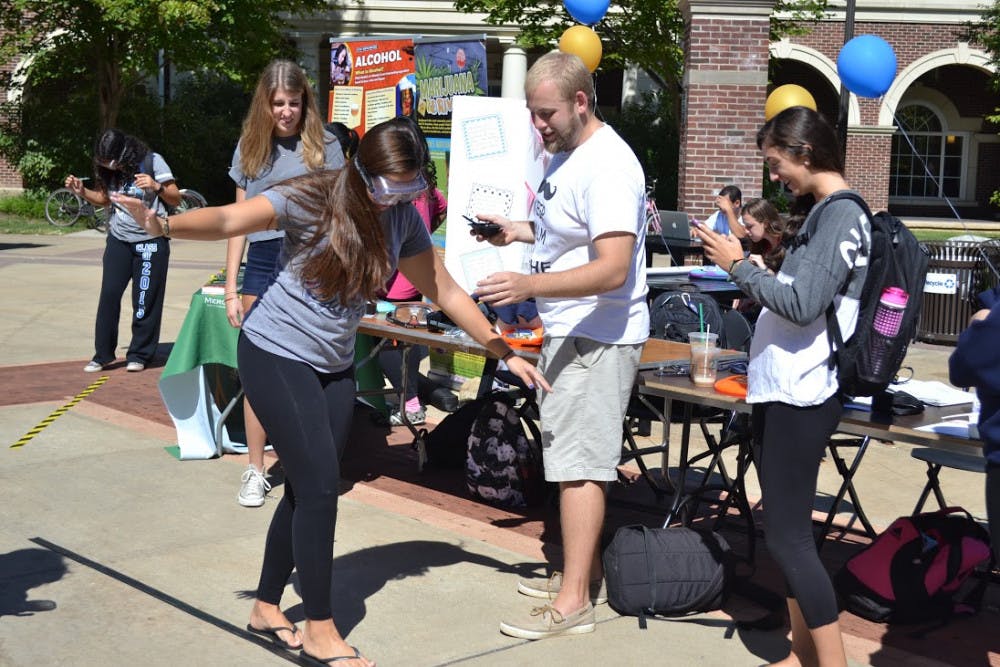By Kyle Elphick
Correspondent
The Arrive Alive Tour, an event famous for its drunk driving simulator, made a stop at the College on Wednesday, Sept. 23, in Alumni Grove.
Sponsored by UNITE, the goal of the tour is to make people aware of the grave dangers that face those who drive while under the influence of drugs or alcohol.
UNITE visits schools from elementary to collegiate levels all over the United States. By raising awareness, UNITE hopes to prevent deaths caused by those who drive while high or drunk.
Though representatives from UNITE were on hand to impart students with important information in regards to these major issues, what truly hammered the point home to students was the group’s DUI/DWI Simulator.
The simulator came in the form of a full-sized, black SUV that was parked outside the entrance to Eickhoff Hall. Students who entered the car got to experience what driving while driving under the influence of drugs or alcohol is like without actually consuming either.
The simulator replicated the side effects of driving under the influence, which include blurred vision and slowed reaction time. Through this simulation, students were shown, first-hand, the potentially lethal dangers of getting behind the wheel in an impaired state of mind.
A line of students yearning to try their hand at the simulator was present for the entirety of the day, with even more students watching the flat-screen T.V. next to the car that broadcasted the perspective of the driver within the simulation. But while the simulator was the headlining attraction of the tour, many organizations at the College set up displays in Alumni Grove to showcase their own activities and information.
These included the Public Health and Communications Club, Project HERO, CAPS Peer Education, the Collegiate Recovery Community, TCNJ EMS and the Mercer Council on Alcoholism and Drug Addiction.
All of these groups share themes of promoting physical and mental health, while creating a positive campus environment. They also help people who have abused alcohol or illegal substances, while trying to prevent future usage.
The Mercer Council put emphasis on the negative effects marijuana can have on the cognitive skills of those who use the drug. The Council provided students with a set of goggles that simulated the effects marijuana has on one’s vision.

Students were then instructed to complete a maze — first unimpaired, and then while wearing the goggles. Sophomore open-options arts and communication major Michael Ruggiero found that it took him more than 20 seconds longer to complete the maze while wearing the goggles.
“It’s harder to see exactly where to go,” he said.
The Public Health and Communications Club provided students with “drunk goggles” and instructed them to walk down a marked straight line, a task many students had difficulty with.
“It provides good immediate feedback for bad decisions,” said junior biology major Dale Oommen, a member of the club.
CAPS Peer Education presented an activity where students were asked to tweet #ArriveAliveTour while kicking a soccer ball around a formation of cones. Though the activity proved to be a humorous sight, it illustrated a serious message — texting is not something that should ever be done while partaking in other activities.
The Arrive Alive Tour proved to be a fun-filled experience for all while simultaneously teaching very important lessons.







